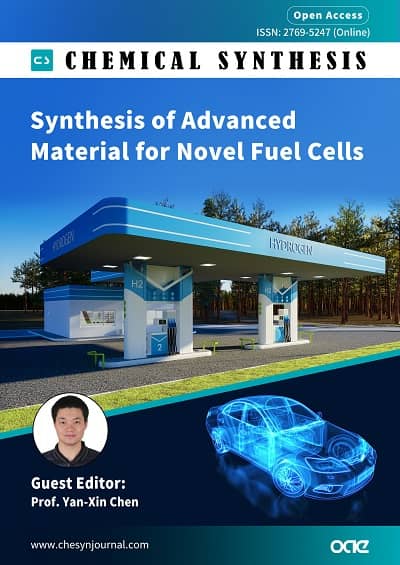
Topic: Synthesis of Advanced Material for Novel Fuel Cells
Guest Editor(s)
Special Issue Introduction
A fuel cell is an electrochemical power generating device that converts the chemical energy of a fuel and an oxidant agent into electrical energy, which is of great interest due to its high efficiency, environmental friendliness and the potential for low emissions. Unlike batteries, which are typical energy storage devices with an upper electrical capacity limit, a fuel cell theoretically has the ability to continuously generate electrical energy as long as fuel and oxidant are supplied to it. The most common classification of fuel cells is based on the type of electrolyte used, in which the low-temperature PEMFCs and the high-temperature SOFCs are of major importance. It is becoming clear that the success of fuel cells will be mainly based on the ability of the industry to design, synthesize and offer cheaper and better materials. Indeed, the advances in materials have largely driven the development of fuel cells; however, the materials challenges for fuel cells are still very demanding.
Specific areas to be covered include, but are not limited to:
● Proton Exchange Membrane Fuel Cells (PEMFC);
● Direct Methanol Fuel Cells (DMFC);
● Direct Alkaline Fuel Cells (DAFC);
● Phosphoric Acid Fuel Cell (PAFC);
● Molten Carbonate Fuel Cell (MCFC);
● Solid Oxide Fuel Cell (SOFC);
● Novel catalysts synthesis without noble metals;
● New routes for the synthesis of carbon materials;
● Novel electrolytes and membranes develop;
● Synthesis and the applications of reliable interconnect materials.
Specific areas to be covered include, but are not limited to:
● Proton Exchange Membrane Fuel Cells (PEMFC);
● Direct Methanol Fuel Cells (DMFC);
● Direct Alkaline Fuel Cells (DAFC);
● Phosphoric Acid Fuel Cell (PAFC);
● Molten Carbonate Fuel Cell (MCFC);
● Solid Oxide Fuel Cell (SOFC);
● Novel catalysts synthesis without noble metals;
● New routes for the synthesis of carbon materials;
● Novel electrolytes and membranes develop;
● Synthesis and the applications of reliable interconnect materials.
Keywords
PEMFC, DMFC, DAFC, PAFC, MCFC, SOFC, catalysts synthesis, electrolytes & membranes development
Submission Deadline
15 Dec 2023
Submission Information
For Author Instructions, please refer to https://www.oaepublish.com/cs/author_instructions
For Online Submission, please login at https://oaemesas.com/login?JournalId=cs&IssueId=cs220830
Submission Deadline: 15 Dec 2023
Contacts: Zoe Lee, Assistant Editor, assistant_editor@chesynjournal.com







